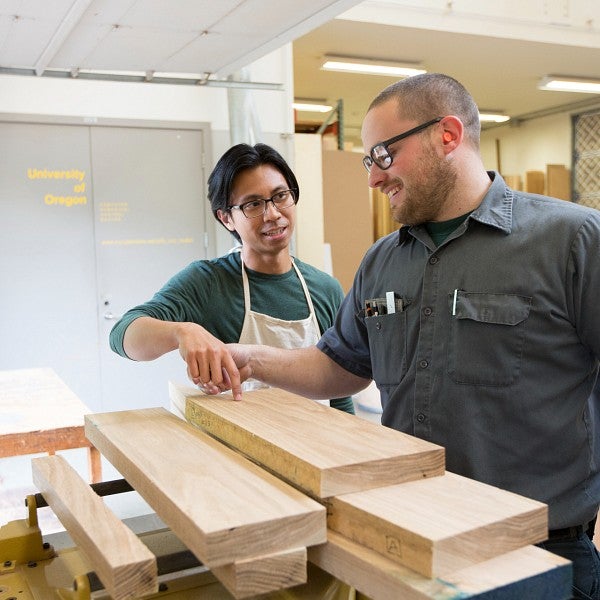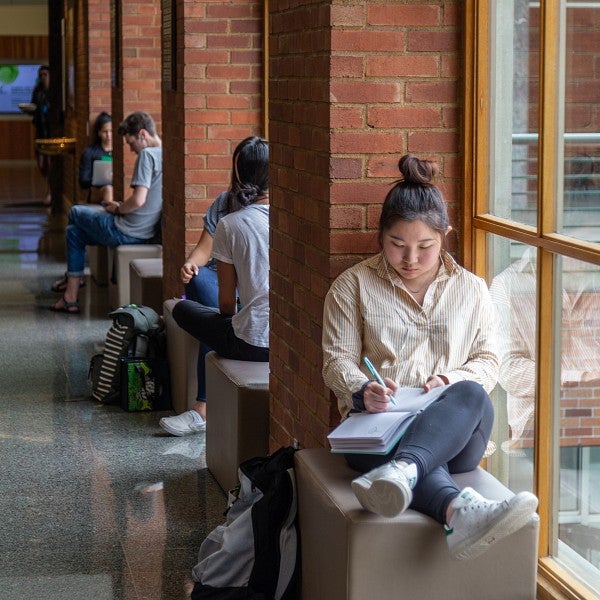
The university supports faculty as they build their network of mentors, while simultaneously developing their own skills as a responsive, reciprocal and adaptive mentor, coach, sponsor, or advisor of students and junior faculty. This work is supported by the Provost Mentorship Fellow. Learn more about the Provost Fellows Program.

Network-Based Mentorship
The UO is reimagining mentorship. Instead of limiting mentorship to a single, formal, or assigned mentor, typically senior to the mentee, we are shifting to a network-based approach in which you have the agency to build your mentorship network with a variety of relationships and interactions. Some will be formal, but most are informal. Some may be long-term relationships, but most are short-term interactions. Your mentorship network could include advisors, sponsors, coaches, role models, supervisors and peers. Everyone at UO deserves a mentorship network, including undergraduate students, graduate students, postdoctoral fellows, faculty and staff.
Mentorship Characteristics
When developing your network, or when you are a part of someone else's mentorship network, keep the following characteristics in mind. Mentorship should be:
Responsive
Responsive mentors (coaches, sponsors, advisors, etc.) respond to the needs, goals, experiences and identities of the mentee with care, compassion and cultural humility. Responsive mentors listen with curiosity, affirm and validate experiences, center the mentee's goals, and let them be the expert about their lived experiences and identity.
Reciprocal
Reciprocal mentors (coaches, sponsors, advisors, etc.) recognize that mentees bring complementary knowledge and experiences to the relationship that allow the mentor to learn and grow as well. Reciprocal mentorship includes curiosity about the mentee's ideas, a willingness to learn and not always be the "knower" in the relationship, interest in the mentee's unique expertise, and the ability to acknowledge and name what you have learned from them.
Adaptive
Mentoring changes with the needs of the mentee, reflecting the mentee’s current career stage, professional goals, and need for guidance. If a mentorship relationship occurs over a longer period of time, mentors (coaches, sponsors, advisors, etc.) need to regularly adjust based on the mentee's input. Mentors must be reflective about the mentee's needs over time, and self-assess regarding any outdated assumptions about the mentee.

Build Your Mentorship Network
As you work to build your own mentorship network, you don't have to start from scratch. The Office of the Provost has designed mentorship map templates tailored to faculty, staff, and students. The Mentorship Network Map is a valuable tool for identifying and visualizing the individuals who provide support and guidance in various aspects of your professional and personal life.
Resources for Aspiring Mentors
Multiple online tools are available to UO faculty, students, and staff who want to improve their mentorship skills. LinkedIn Learning and Academic Impressions provide numerous professional development resources on mentorship.
University of Oregon
LinkedIn Learning

Resources for Faculty and Students
A wide array of mentorship resources are available, whether you're a faculty member, graduate student, or an undergraduate student. Find organizations, opportunities, and tools geared toward you.
